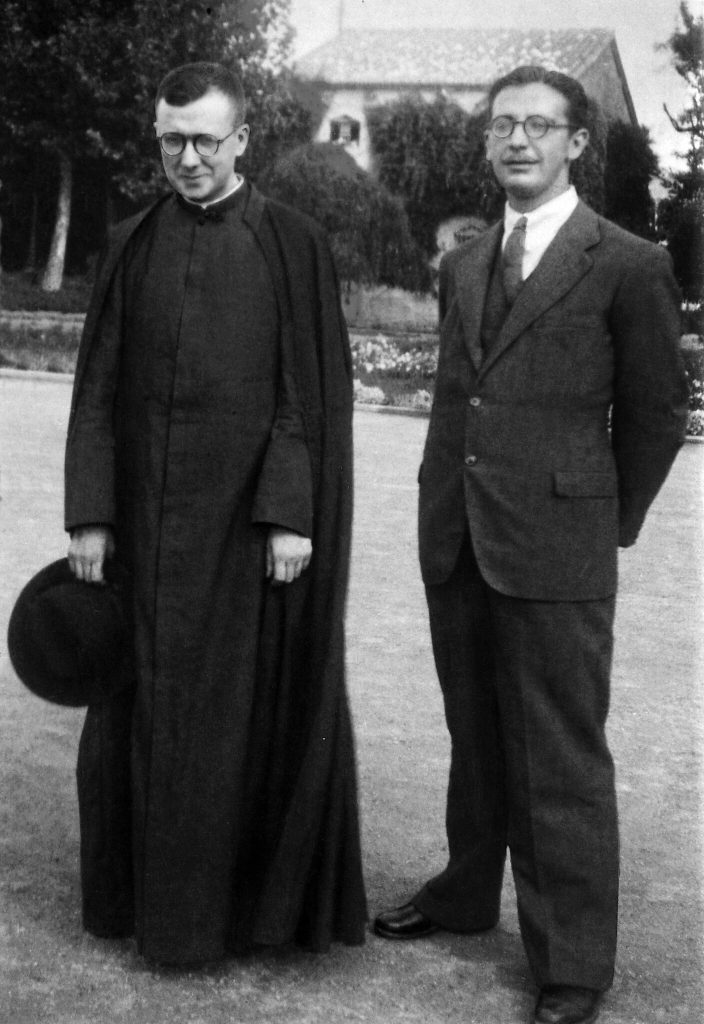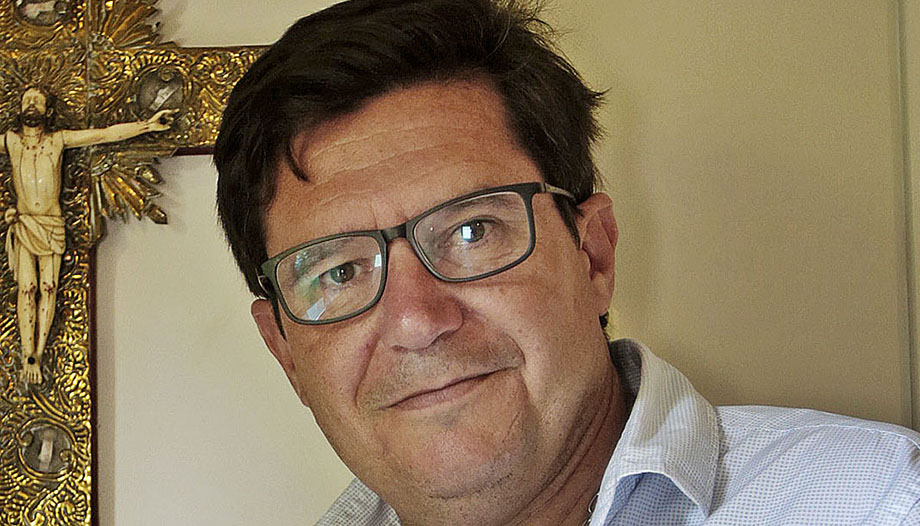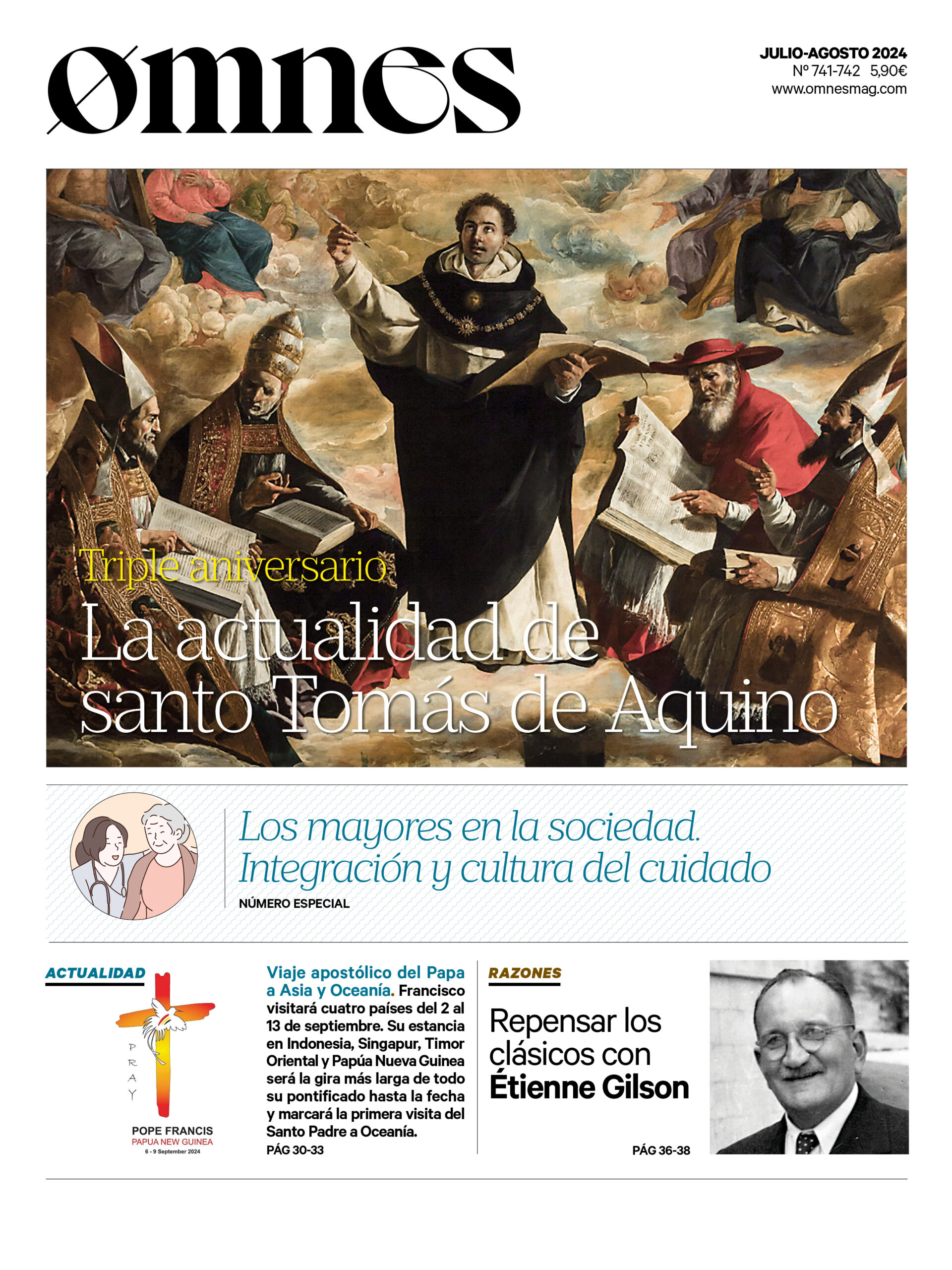Enrique García Máiquez is a native of Murcia, where he was born in 1969, but it is in Puerto de Santa María (Cádiz) where he writes to life. Recently awarded with the I Essay Award Sapientia CordisGarcía Máiquez, a married father of two children, will deliver the inaugural lecture of the 11th edition of CEU Ediciones. St. Josemaría Symposium which will be held on November 17 and 18 at the Palacio de Congresos de Jaén.
Under the title "The Power of Friendship", this symposium will reflect, during these days, on the nature of friendship, its necessity for life or the different friendships of people, and people with God.
García Máiquez, a renowned poet and essayist, is also a contributor to various media and, in his writings, his mastery of language and fine humor are elegantly intertwined. For him, friendship in St. Josemaría is one of the key characteristics of the founder of the Opus Dei.
His lecture will speak about St. Josemaría as a witness What episodes in the life of St. Josemaría stand out as key to his relationship with his friends?
-He was very impressed by the diversity and variety of his friends. He never invited some of his closest friends to join the Work, because his fatherhood was one thing and his friendship another. He was deeply concerned about everyone.
It is striking that his friends spoke of the time he dedicated to them, although he was, naturally, a man with very little time and a great urgency for souls. It is also very nice and natural that some of his friendships were family friendships, such as with the Cremades or the Giménez Arnau family. The children, as it usually happens, inherited the friendship of their fathers with the Father.
St. Josemaría encouraged us to speak of God to our friends and to speak to God about our friends. Do we too often forget to keep a balance between these two legs for some reason? That is to say, are we either the nags who only give you spiritual advice or the "quiet ones" who pray a lot and speak little?
-Of course! Balance is always the most difficult thing to maintain, largely because there is only one balanced posture while the angles of deviation are very numerous and surround us from all sides.
In this particular case, it is comforting that, as God always hears us, he also participates (two who meet in his name) in conversations with friends.
"Neither plasta nor mute" is a great motto, thank you very much.
In his book, The Grace of Christ Should we joke more with God, as we do with our friends? Is it difficult for us to take this step from humor to love?
-Isabel Sánchez Romero, who will close the symposium, has seen this very well. In a recent interview she said that St. Josemaría's way of being was like that of Jesus Christ: "friendly and fun-loving.
When I read the Gospels looking for traces of Jesus' humor I was surprised at how much he liked to tease his disciples: he pretends to walk by, laughs up a storm, sends them on slightly outlandish errands, tells them to take the coin out of the mouth of the first fish they catch, etc.
Also in the prayer he asks them very jokingly "who do you say that I am", to laugh at the nonsense. It is continuous. In the same way, Providence, even if we are not very attentive, plays with us. To laugh at their jokes is already to pray.
Does today's society suffer from lack of friendship (bene - volentis) true?
-I will say in my lecture at the symposium that friendship as proposed to us by St. Josemaría is very countercultural, very contra mundumprecisely because it is the true one, which demands time, attention, excess in dedication and sacrifice.
As in all other dimensions of postmodern life, we are accustomed to the disposable friend, to the consumerism of friendship, to the Facebook "friend" or similar. And that -which is fine in its own way- is not friendship.
History is full of "saintly" friends: from Philip and Bartholomew, to St. Ignatius of Loyola and St. Francis Xavier, St. Clare and St. Francis, or St. Josemaría and Blessed Alvaro. Is true friendship the path to sanctification?


-A beautiful observation. True friendship, as Aristotle and Plato, also friends, saw, demands virtuous people who want the good of their friend above even their own.
Christianity has not come to change this, but to elevate it, as it always does with natural things. In two ways. One way: it is logical that those who share the love of God have more to share together than those who do not love him. And back: we friends enjoy introducing each other. A friend of ours who is a friend of God will not be slow to introduce us to him with the lively hope that we will soon become close.












